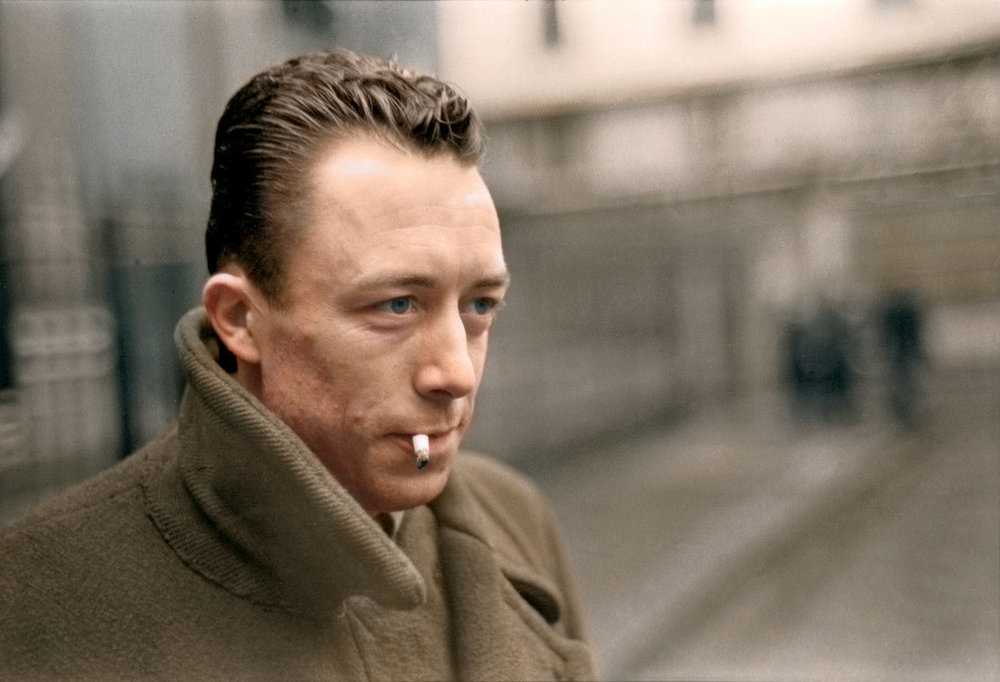He found it absurd to die in a traffic accident, he died in a traffic accident: Who is Albert Camus?
We examined the life of Albert Camus, who did not consider himself a philosopher because he did not like to fit himself into stereotypes, his farewell to life with the way he died, which he found absurd, and his works.

Albert Camus was born in 1913 in the Algerian town of Mondovi as the son of an Alsatian father and a Spanish mother. Camus, who was very young when his father Lucien died at the front in the First World War, had a difficult childhood with his mother who went to clean the houses, his grandmother, and his paralyzed uncle.
Albert Camus (7 November 1913 – 4 January 1960) was a French philosopher, author, dramatist, and journalist. He was the recipient of the 1957 Nobel Prize in Literature at the age of 44, the second-youngest recipient in history. His works include The Stranger, The Plague, The Myth of Sisyphus, The Fall, and The Rebel.
Camus, who started primary school in 1918, won a scholarship with the support of his teacher and started high school in 1923. After high school, he studied philosophy at the University of Algeria.
In addition to his interest in philosophy and literature, he was also closely interested in football and was a goalkeeper on the school team when he went to university. But in 1930, he had to take a break from his university education and football due to tuberculosis. During his break from school, he earned money by working at the meteorology institute and giving private lessons. He continued his university education in 1935 and graduated from the philosophy department in 1936.
Albert Camus and Football
In addition to his interest in literature and philosophy, Albert Camus was the goalkeeper of the school's football team during his university years. He said that he was not a goalkeeper at the beginning and chose to be a goalkeeper because his shoes were less worn. Camus had to quit football due to tuberculosis. In an article he wrote about football in a sports magazine in the 1950s, he established the following sentence: "Whatever I know about morality and human obligations, I owe football to football."
His main reason for joining the French Communist Party in 1934 was not his belief in the Marxist-Leninist ideology, but his fear of a situation that would result in civil war in Spain. However, three years later, he transferred to the Algerian Communist Party. He was expelled from the party in 1937 on charges of staying away from Stalinist communism and accusing him of Trotskyism.
Besides being a good novelist, he was also a playwright. In 1935 he founded the Theater du Travail (Worker's Theatre). He wrote his first theatrical work, Caligula. He wrote, directed, and acted in plays during the time the theater was standing. In this period, he was accepted as the pioneer of absurdism with his drama about an insane Roman emperor.
In 1945, he started to write articles for Paris-Soir magazine. At the beginning of the Second World War, he took a pacifist attitude. He abandoned his peaceful stance when Paris was occupied by the Germans and witnessed the execution of communist journalist Gabriel Peri in 1941. In the same year, he wrote The Stranger, which is a novel, and The Myth of Sisyphus, which is an essay.
He participated in the French Resistance against Nazi Germany in the Second World War. He began publishing the newspaper Combat and became its editor in 1943. He left here in 1947 when the newspaper began to gain a commercial dimension. It was during this period that he met Jean-Paul Sartre. At the end of the war, he made friends with Sartre and the feminist philosopher Beauvoir at the Cafe de Flore. During this period, he traveled to America and gave lectures on French existentialism.
His opposition to communism led to the deterioration of his friendship with Sartre. In 1949, with the progression of tuberculosis, he stopped working until 1952. Camus, who was involved in human rights activities in 1950, left UNESCO when the United Nations accepted Spain, which was under Franco's dictatorship, as a member.
When he published The Man Who Rebelled in 1951, it was not adopted by his left-wing friends, and this work completely ended his friendship with Sartre. In 1956, he wrote his last book, The Fall, which was published while he was alive.
He won the Nobel Prize for Literature in 1957, making him the second youngest winner after Rudyard Kipling and the first African-born author.
His marriages
In 1934, he married for the first time, at the age of 21, to Simon Hie, the daughter of a wealthy ophthalmologist. This marriage ended two years later due to Simon Hie's addiction to morphine and their unfaithful behavior toward each other. He married the pianist and mathematician Francine Faure in 1940 and they had twin children, Catherine and Jean, in 1945.
He died on January 4, 1960, in the town of Villeblevin, near Sens, in a traffic accident with his Facel Vega car, accompanied by his publisher friend Michel Gallimard.
When Albert Camus was asked before, "What is the most absurd way to die", he replied: "Dying in a car crash." It is absurd that he himself died in this way.
